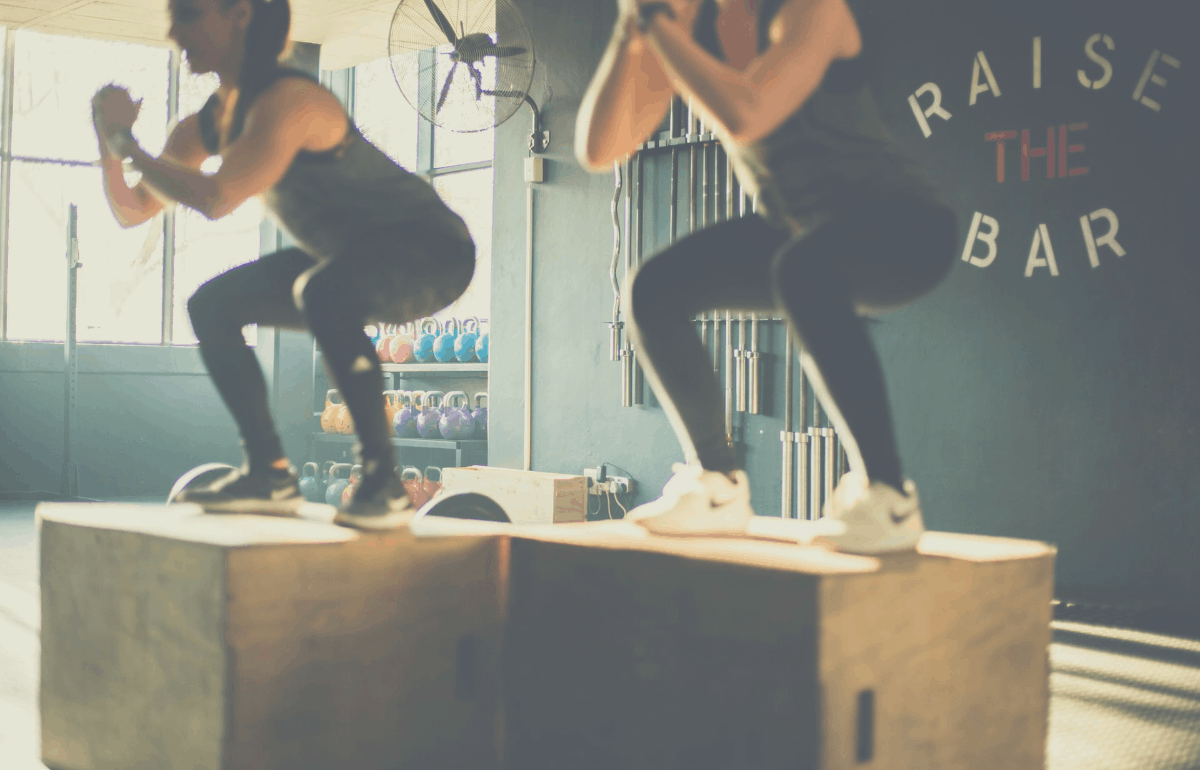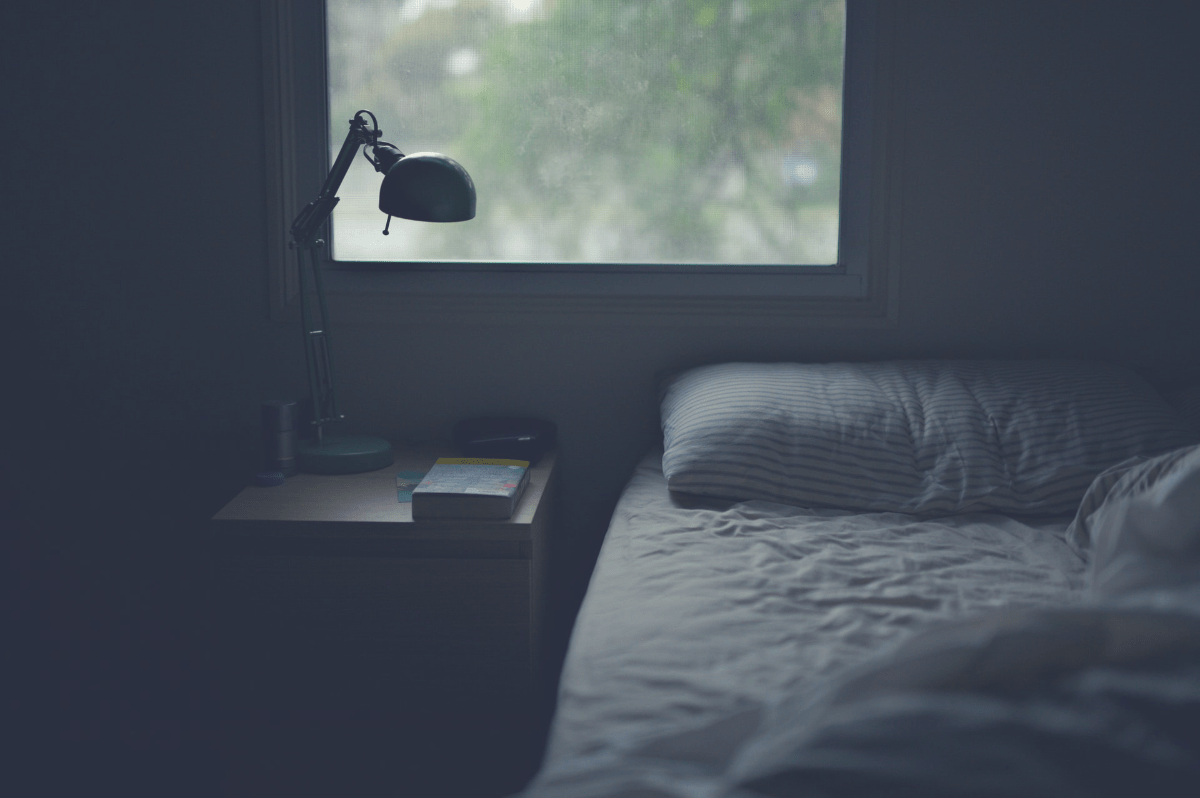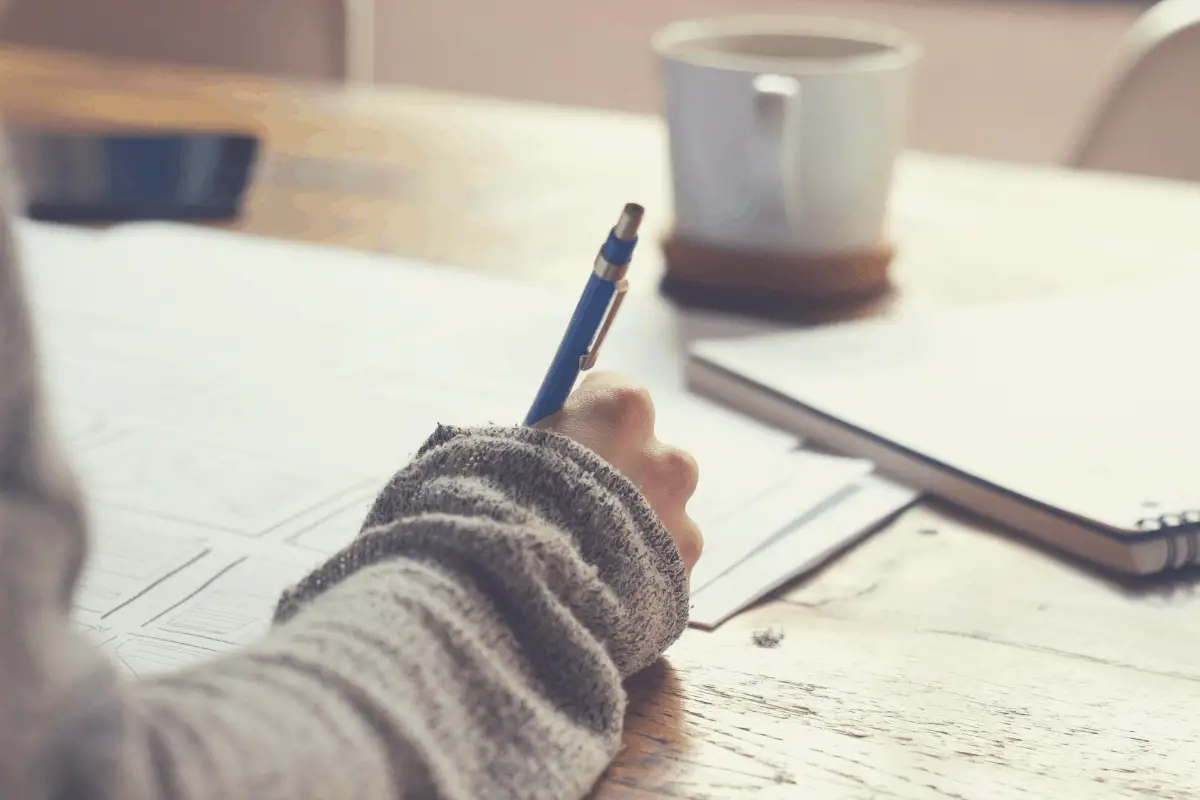Do you have an important exam coming up tomorrow? Good sleep is the last thing you need right? Wrong! Many students go to great lengths to stay up on the night before an important test, cramming their books and trying to study as much as possible.
However, they arrive at the exam already fatigued and restless from cheating their bodies of sleep overnight. The result is often mediocre performance in the exam.
Even if you’re aware of how important getting a good night’s rest can be, drifting to sleep can be difficult due to heightened examination anxiety. You may be forced to stay up in bed, watching the ceiling, and wishing there was a magic solution you could take to get some shut-eye.
Is it even possible to sleep the night before an exam? The answer is yes. Maintaining a regular sleep routine, practicing mind relaxation techniques such as meditation, and going to bed early after a warm shower can increase the chances of blissful sleep on the eve of an exam.
How to Prepare Yourself on the Eve of the Exam
The day before the exam is finally here and you’re having mixed feelings. However, there are a couple of steps you can take to ensure little goes wrong when it is time to slip into la-la Land.
Here are a few universally acclaimed techniques that can put anyone on the path towards peaceful sleep even if you’re anxious about the impending test.
1. Calm Down Your Mind
The first step to achieving good sleep the night before an important exam is to calm down the mind. No matter how critical the exam may seem, getting overwhelmed by its relevance the night before can be a recipe for disaster.
It is important to practice active mind-relaxation techniques such as deep breathing exercises to reduce your anxiety and stress levels. Repeatedly telling yourself that one night will not make any major impact on how good you do on the exam can also bring a wave of calm to the mind.
Remember, the quality of preparation undertaken over the exam preparation period will determine how good the score turns out.
Besides, allowing other distractions such as issues in your private life to creep into the mind on the eve of an exam is also a big no-no. Find ways to focus on positive thoughts and reassure yourself that there’s always a way out even if the examination results end up being below expectations.
As long as you prepared well for the exam, be confident about the chances of success and don’t get too stressed out as the important day draws near.
2. Wake Up at the Same Time
We talked about how important it is to go to bed at the same time two weeks or so before the D-day. Well, it is equally important to wake up at your regular time on the day before. This can signal to the brain that it is just another day and there’s no cause for alarm.
Remember, oversleeping can mess up your circadian rhythm leading to severe bedtime struggles at night.
Waking up way earlier than usual can be equally bad for many reasons. The amount of sleep may be so inadequate that a mid-day nap may be required to even things out. That can translate to sleeping difficulties by the time you’re ready to hit the hay at night time as the internal clock mechanism struggles to determine which sleep routine to follow.
So just stick to the regular sleep schedule and things will be fine.
3. Workout

Early morning workouts can be fuel for the soul and can set up the body to achieve maximum productivity for the rest of the day.
According to WebMD, feel-good hormones known as endorphins are released during exercise. This can reduce anxiety and depression levels while improving your mood for the rest of the day. With these hormones present in the body, focusing on your studies throughout the day and sleeping calmer at bedtime shouldn’t be a problem.
If you’ve never exercised the day before an exam, the time to try is now. As long as the body does not get overexerted, you’ll be pleasantly surprised how positive it feels.
4. Study Early Mornings
The importance of studying early in the morning cannot be overemphasized. It can allow you to undertake as many revisions as possible before bedtime. This can boost confidence and reduce your anxiety as the exam quickly approaches.
Studying early in the day can also eliminate the need to cram revision materials late at night when you should rather be in Snoozeland. By the time night falls, your brain will be fatigued to the point where sleep should come naturally.
Additionally, know that there are fewer distractions during the early periods of the morning compared with other times of the day.
5. Avoid Studying in Bed
Do you frequently study while seated or lying down on your bed? That could be the reason for those nights of tossing and turning. Studying in bed can impair the brain’s ability to differentiate between your bedroom and study desk.
In the body’s bid to ensure maximum focus during studies, sleep can be hard to come by as long as you remain in the same environment. This could be the reason why you may be struggling at bedtime.
Even if you’ve been studying in bed all week, a change of settings can be good when it is time to retire at night. This is why experts recommend studying in your living room, balcony, patio, or library instead.
By the time you jump into bed on the eve of the exam, the change of scenery can be communicated to the brain. This can result in quick and effortless sleep.
6. Take Power Naps

After many hours of continuous studying, power naps can be lifesaving. These short 20-30 minute naps can give the body an instant dose of energy to enable superior focus levels.
These naps can be especially critical when you’re fatigued and seem to be struggling to study.
Unlike longer naps that can cause drowsiness and make you feel sluggish, short naps can allow going back to studying with no downtime. Additionally, the short length of these naps can have no negative effects on your sleep schedule at night.
The result is maximum productivity and an increased chance of doing well in the test.
7. Take a Nighttime Walk
During favorable weather, nighttime walks can be good for your sleep. In my opinion, the best time for taking these walks is after dinner as the physical exertion can boost digestion.
Taking a walk can also help you gather positive thoughts, remember important details, and get a healthy dose of fresh air.
The time spent outdoors can also boost the body’s ability to regulate itself leading to satisfying sleep once you jump into bed.
8. No Coffee
Drinking coffee the day before an exam is one of the easiest ways to disrupt good sleep. If possible, avoid coffee altogether on that day and the day of the exam. If you must satisfy the caffeine urge, it is important to drink no more than 3 cups a day.
Also, your last cup of coffee should be consumed at least 6 hours before retiring to bed. Thus, if you plan to sleep at 9 pm, say no to coffee after 3 pm.
Apart from coffee, try to stay away from beverages that contain significant amounts of caffeine including green tea, soda, energy drinks, and chocolate bars.
Have you read the article we wrote on sleeping after too much coffee? Click here for quick tips to get a satisfying nighttime rest after excessive caffeine consumption.
9. Ditch the Alcohol
If you’re serious about sleeping the night before an exam, you cannot entertain the thoughts of drinking alcohol.
Even a glass of wine can lead to frequent bathroom visits, causing dehydration over time. This may increase the urge to drink more water resulting in more bathroom visits. Can you imagine how this cycle can be disruptive to your sleep and energy levels in the morning?
Alcohol consumption can affect your alertness levels and lower the chances of doing well in the test. This is why you should resist the temptation to drink alcohol until after the exam.
10. Lower Your Bedroom Temperature
Lower bedroom temperature can promote good sleep. If you’re struggling to get the much-needed shut-eye, tweaking your thermostat can be the key if the home has a central cooling system.
Turning on the AC or fan can make the room cooler and alert the brain to release the right sleep-promoting hormones.
Even in the absence of cooling gadgets, opening the bedroom windows or damping your bedsheets can quickly reduce your body temperature. Within minutes, you will be having a good time in Dreamland.
Have you read the article we wrote on the benefits of sleeping with the fan? Click here for 5 top reasons why you should always turn on the fan.
11. Take a Warm Shower
A hot, soothing shower the night before an exam is non-negotiable if you want the best sleep possible. Hot showers can cool down the body’s internal temperatures and send signals to the brain that bedtime is imminent.
Adding essential oils to the mix can also enhance your sleeping experience by the time you jump into bed. Remember, the aroma from oils such as Jasmine, Lavender, and Chamomile has been used for centuries thanks to their natural sleep-inducing properties.
Apart from bathing with these essential oils, you can also invest in a dispenser. This can release the aroma from these oils into the bedroom to promote satisfying sleep.
The Ultimate Aromatherapy Diffuser with Essential Oils from Amazon helps me sleep quicker and longer. It is highly recommended if you want to enjoy a restful night on the eve of an exam.
12. Sleep in Your Bed
Do you struggle to nod off whenever you sleep in a bed other than your own? If the answer is yes, you’re not alone. Many of us count sheep for hours whenever we find ourselves in different surroundings.
This is why it is advisable to sleep in your bed the night before the exam. The familiar surroundings can communicate safety to the brains. The brains can then “let down its guard” by lowering your body temperature, releasing pro-sleep hormones, and undertaking other steps necessary to promote sleep.
13. Switch off the Lights

Darkness and good sleep act as good complements for each other. If you’re struggling to drift off into slumber, switching off the lights can provide amazing results. This is because the human brain naturally associates darkness with sleep.
If you’re uncomfortable switching off the lights completely, dimming them should at least increase the chances of having a good night. Pulling your window blinds can also work well in many scenarios.
14. Switch off Your Gadgets
Ditching your gadgets can be another great way to enjoy quality sleep on the eve of an exam. Smartphones, in particular, can emit blue lights that may be harsh on the eyes and keep you awake for several hours.
Plus, going through people’s social media feeds and checking out buddies on Instagram can distract you from sleeping on time.
Switching off your gadgets may also calm the mind and keep several distractions at bay. This can be critical if you’re serious about having a good night of sleep.
15. Use White Noise
White noise can be a great way to get some shuteye the night before an exam for residents of loud college campuses or city center apartment with lots of noise.
Good sources of white noise may include rainfall sounds, thunder, and even televisions. But what is white noise and how does it promote satisfying sleep? Well, these are pleasant sounds than can drown out more disruptive noises in your surroundings to enable sleep better.
16. Cool Tempo Music
Listening to cool music is another tried and tested method for a good night of rest. Perhaps, you’ve heard the saying that music is food for the soul. Well, relaxing music can reduce stress levels by calming the mind.
This should make it easy to drift off pleasantly and wake up feeling refreshed. Listening to calming music for only 30 minutes before bedtime should be enough to do the trick.
Cramming Never Works
If you’re like me, the temptation to cram as much as possible the night before an exam is never too far away. No matter how much you’ve been revising the textbooks and lecture notes, you’ll always feel like there’s more to study especially on the eve of the D-day.
However, staying up to cram can rob you of the critical rest the body needs to deliver at an optimal rate during the exam.
Instead, try to study as much as possible way before the day of the test and undertake as many practice tests as possible. This can boost confidence levels and allow you to relax the night before the all-important day.
I always noticed that my friends and roommates who resisted the urge to cram due to their extensive preparations always ended up acing their tests during college. At least, they always got scores which were superior to mine
How to Prepare Yourself a Week Before the Exam
Preparing the body at least a week before the exam date can be a smart idea. But undertaking routines and activities that can rob you of the ability to sleep in the days leading up to the exam can be pointless.
This can make it difficult to get the much-needed shut-eye on the night before the big day.
Here are a few techniques that can boost your chances of good sleep when you have a career-defining exam coming up.
-
- Study As Much As You Can – Studying as much as you can at least in the weeks leading to the exam may not have a direct impact on getting satisfying nighttime rest. But it can boost confidence levels to the point where you can relax on the eve of the important day. This can lead to lower levels of anxiety and a decreased temptation to try to cram in as much information as possible.
- Go to bed at the same time each day – Establishing a consistent sleep routine at least 2 weeks before the exam can be beneficial. This can set your body’s internal clock mechanism to fall asleep around the same time on the eve of the test.
- Find a routine that allows you to fall asleep fast – Most people have a set routine that helps them to fall asleep. It can be as simple as listening to music an hour before bedtime or even taking a walk to get some fresh air. Once the body gets used to that routine, nodding off the night before that important exam should be a walk in the park.
- Catch up on any sleep debt – As the saying goes, nature cannot be cheated. If you have any sleep deficits, it is important to catch up on it before the exam date. This can boost energy levels and enhance productivity as you continue to prepare for that critical exam.
Conclusion
The night before an exam should be for relaxation and not for studying. All the hard work should have been done in the previous day and weeks. The tips we’ve shared above can help you calm the mind and fall asleep with ease.
Hopefully, you’ll wake up the next day full of energy and ready to go. Good luck with your exam!
